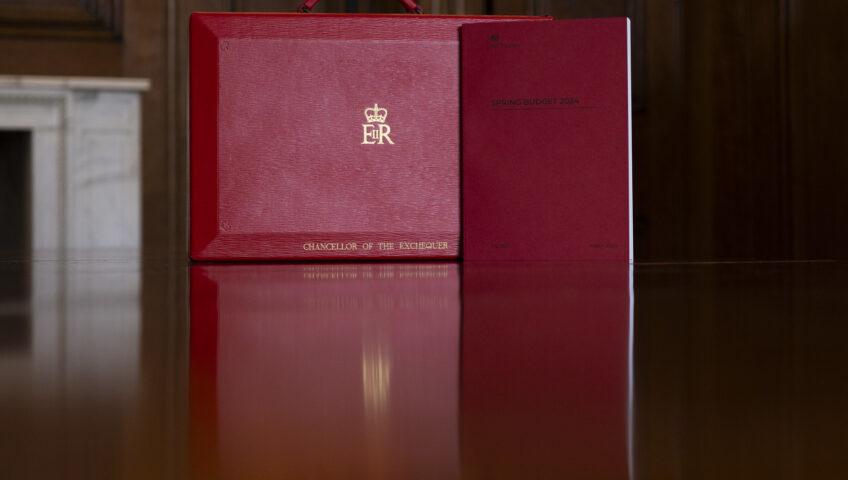
On 6 March 2024, Chancellor Jeremy Hunt presented his Spring Budget to Parliament. In the knowledge that the government must hold a general election before 28 January 2025, this was a Budget designed to restore confidence and win voters. But on the heels of Britain entering a recession and downgraded Office for Budget Responsibility (OBR) forecasts, the Chancellor had his work cut out.
Headlines included further cuts in National Insurance Contributions for workers and the self-employed, a slight increase in the VAT registration threshold and an increase in thresholds to reduce the number of people affected by the high-income child benefit charge. There has also been a cut in capital gains tax for higher earners disposing of residential property. However, income tax rates and thresholds remained static and inheritance tax continues to apply to the largest estates.
Below, we talk more about the Budget and what it means for you.
Income Tax
Please note that ‘tax years’ run to 5 April each year and that, for example, 2024/25 signifies the year to 5 April 2025.
Your personal allowance
Your tax-free personal allowance will remain at £12,570 in 2024/25. The personal allowance is partially withdrawn if your income is over £100,000 and then fully withdrawn if your income is over £125,140.
Income tax rates and allowances
For 2024/25, income tax rates and thresholds remain frozen at their 2023/24 levels.
After your tax-free ‘personal allowance’ has been deducted, your remaining income is taxed in bands in 2024/25 as follows.
| ‘Other income’ | Savings income | Dividend income | ||
| Basic rate | £1 – £37,700 | 20% | 20% | 8.75% |
| Higher rate | £37,701 – £125,140 | 40% | 40% | 33.75% |
| Additional rate | Over £125,140 | 45% | 45% | 39.35% |
‘Other income’ means income other than from savings or dividends. This includes salaries, bonuses, profits made by a sole trader or partner in a business, rental income, pension income and anything else that is not exempt.
So what? Without inflationary increases to the income tax bands, the Chancellor is effectively imposing an income tax increase; as wages and earnings rise and a larger proportion falls into higher tax bands. This is known as ‘fiscal drag’.
Scottish taxpayers
If your main residence is in Scotland or you are otherwise classed as a ‘Scottish taxpayer’, the application of income tax rates and bands applies differently where ‘other income’ is concerned. After the ‘personal allowance’ has been deducted, your ‘other income’ is taxed in bands as follows:
| 2024/25 | 2023/24 | |||
| Starter rate | £1 – £2,306 | 19% | £1 – £2,162 | 19% |
| Basic rate | £2,307 – £13,991 | 20% | £2,163 – £13,118 | 20% |
| Intermediate rate | £13,992 – £31,092 | 21% | £13,119 – £31,092 | 21% |
| Higher rate | £31,093 – £62,430 | 42% | £31,093 – £125,140 | 42% |
| Advanced rate | £62,431 – £125,140 | 45% | ||
| Top rate | Over £125,140 | 48% | Over £125,140 | 47% |
The Scottish Budget was held on 19 December 2023 and made changes including the introduction of the new ‘advanced rate’ of income tax for 2024/25.
Tax on savings income
A savings allowance determines how much savings income you can receive at 0% taxation, instead of the usual tax rates for savings income as shown above.
This continues to be set at £1,000 for basic rate taxpayers and £500 for higher rate taxpayers.
Further, interest income from an Individual Savings Account (ISA) continues to be exempt from tax.
Tax on dividend income
A dividend allowance determines how much dividend income you can receive at 0% taxation, instead of the usual tax rates for dividend income as shown above.
As expected, this allowance will drop to £500 in 2024/25, down from the £1,000 2023/24 allowance.
However, dividend income from a ‘stocks and shares’ ISA continues to be exempt from tax.
Need more information?
We offer a wide range of services which are unique to your businesses who are just getting going! Our team of chartered accountants have a wealth of experience in a broad range of sectors, from construction and property to the charity sector. Our team work hard to ensure they create smart and effective tax-efficient solutions for start-ups to optimise growth and help them succeed. If you want to learn more about how the team can help or simply want some start-up advice from a trusted accountant do hesitate to contact us. For more information please do hesitate to contact us on 0161 962 1855. Alternatively you can email us using the form below and we will contact you as soon as possible.
Our fantastic team at A&C Chartered Accountants are here to help.


Write a Comment